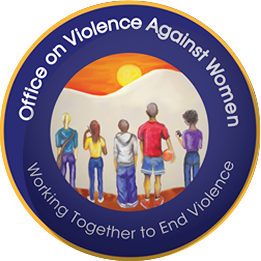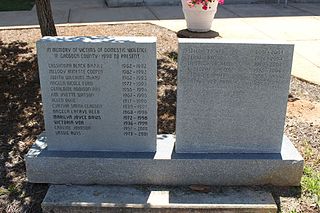Feminist legal theory, also known as feminist jurisprudence, is based on the belief that the law has been fundamental in women's historical subordination. Feminist jurisprudence the philosophy of law is based on the political, economic, and social inequality of the sexes and feminist legal theory is the encompassment of law and theory connected.The project of feminist legal theory is twofold. First, feminist jurisprudence seeks to explain ways in which the law played a role in women's former subordinate status. Feminist legal theory was directly created to recognize and combat the legal system built primarily by the and for male intentions, often forgetting important components and experiences women and marginalized communities face. The law perpetuates a male valued system at the expense of female values. Through making sure all people have access to participate in legal systems as professionals to combating cases in constitutional and discriminatory law, feminist legal theory is utilized for it all.

Intersectionality is an analytical framework for understanding how aspects of a person's social and political identities combine to create different modes of discrimination and privilege. The term was coined by Kimberlé Crenshaw in 1989. Intersectionality identifies multiple factors of advantage and disadvantage. Examples of these factors include gender, caste, sex, race, ethnicity, class, sexuality, religion, disability, weight, physical appearance, and height. These intersecting and overlapping social identities may be both empowering and oppressing.

Critical race theory (CRT) is a cross-disciplinary intellectual and social movement of civil-rights scholars and activists who seek to examine the intersection of race and law in the United States and to challenge mainstream American liberal approaches to racial justice. For example, the CRT conceptual framework is one way to study how and why US courts give more lenient punishments to drug dealers from some races than to drug dealers of other races. It first arose in the 1970s, like other "critical" schools of thought, such as Critical Legal Studies, which examines how legal rules protect the status quo.

The United States Office on Violence Against Women (OVW) was created following the Violence Against Women Act (VAWA) of 1994. The Act was renewed in 2005 and again in 2013. The Violence Against Women Act legislation requires the Office on Violence Against Women to work to respond to and reduce violence against women in many different areas, including on college campuses and in people's homes. VAWA requires Office on Violence Against Women to administer justice and strengthen services for victims of domestic violence, dating violence, sexual assault, and stalking.
Women of color is a phrase used to describe female non-whites. The political term "women of color" surfaced in the violence against women movement. In the late seventies it unified all women experiencing multiple layers of marginalization with race or ethnicity as a common issue.

Kimberlé Williams Crenshaw is an American civil rights advocate and a leading scholar of critical race theory. She is a professor at the UCLA School of Law and Columbia Law School, where she specializes in race and gender issues.
Shahrazad Ali is an American author of several books, including a paperback called The Blackman's Guide to Understanding the Blackwoman. The book was controversial bringing "forth community forums, pickets and heated arguments among blacks in many parts" of the US when it was published in 1989.
The Center Against Domestic Violence is an American not-for-profit organization dedicated to preventing violence in the family and promoting the well-being and economic independence of women and children. It provides safe shelters, a network of supportive services, advocacy, education and resource information, and coalition building.

The National Network to End Domestic Violence(NNEDV) is a 501(c)(3) not-for-profit organization founded in 1990, based in the District of Columbia. It is a network of state domestic violence coalitions, representing over 2,000 member organizations nationwide. The National Network to End Domestic Violence works to address the many aspects of domestic violence.

National Coalition Against Domestic Violence (NCADV) is a 501(c)(3) nonprofit organization with the mission to be the voice of victims and survivors of domestic violence. It is based in Denver, Colorado. National Coalition Against Domestic Violence's vision is to create a culture where domestic violence is not tolerated and where society empowers victims and survivors while holding abusers accountable.
Legal Momentum, founded in 1970, is a 501(c)(3) nonprofit and the nation's first and longest-serving legal advocacy group for women in the United States. Betty Friedan and Muriel Fox were its co-founders and Muriel Fox is an ongoing leader of the organization. Carol Baldwin Moody became President and CEO in April 2018. The organization, founded as the NOW Legal Defense and Education Fund, became Legal Momentum in 2004. Legal Momentum is a multi-issue organization dedicated to advancing women’s rights and gender equality, particularly in the areas of equal education opportunities; fairness in the courts; ending all forms of gender-based violence; workplace equality and economic empowerment. The organization employs three main strategies: impact litigation, policy advocacy, and educational initiatives. It is headquartered in New York City.
The African American Policy Forum (AAPF) is a social justice think tank focused on issues of gender and diversity. AAPF seeks to build bridges between arts, activism, and the academy in order to address structural inequality and systemic oppression. AAPF develops and promotes frameworks and strategies that address a vision of racial justice that embraces the intersections of race, gender, class, and the array of barriers that disempower those who are marginalized in society.

Domestic violence in United States is a form of violence that occurs within a domestic relationship. Although domestic violence often occurs between partners in the context of an intimate relationship, it may also describe other household violence, such as violence against a child, by a child against a parent or violence between siblings in the same household. It is recognized as an important social problem by governmental and non-governmental agencies, and various Violence Against Women Acts have been passed by the US Congress in an attempt to stem this tide.

#SayHerName is a social movement that seeks to raise awareness for Black female victims of police brutality and anti-Black violence in the United States. Black women are 17% more likely to be stopped by police and 150% more likely to be killed than their white counterparts. #SayHerName aims to highlight the gender-specific ways in which Black women are disproportionately affected by fatal acts of racial injustice. In an effort to create a large social media presence alongside existing racial justice campaigns, such as #BlackLivesMatter and #BlackGirlsMatter, the African American Policy Forum (AAPF) coined the hashtag #SayHerName in December 2014.
Joanne Ninive Smith is a first-generation Haitian-American social worker and activist born and raised in New York City. She is the executive director and founder of the Brooklyn-based non-profit organization, Girls for Gender Equity (GGE). Smith has organized around the issues of gender equality, racial justice, school pushout, sexual harassment, police brutality, the criminalization of black girls in schools and violence against transgender and gender non-conforming people of color.
The Illinois Coalition Against Domestic Violence (ICADV) is a non-profit organization of member organizations throughout Illinois that provide services for persons experiencing domestic violence. ICADV also works with health providers, community groups, religious groups, criminal justice agencies, and federal and state offices to supply services, support, and justice.
Intersectionality is the interconnection of race, class, and gender among an individual or group. This is often related to an experience of discrimination or a disadvantage. This definition came from Kimberlé Crenshaw. Kimberlé Crenshaw, a feminist scholar, is widely known for coining the term intersection in her 1989 essay, which sheds light on the oppression black women have been exposed to, especially during the slavery period. Crenshaw's analogy of intersection to traffic flow explains, "Discrimination, like traffic through an intersection, may flow in one direction, and it may flow in another. If an accident happens in an intersection, it can be caused by cars traveling from any number of directions and, sometimes, from all of them. Similarly, if a Black woman is harmed because she is in the intersection, her injury could result from sex discrimination or race discrimination."
Queer of color critique is an intersectional framework, grounded in Black feminism, that challenges the single-issue approach to queer theory by analyzing how power dynamics associated race, class, gender expression, sexuality, ability, culture and nationality influence the lived experiences of individuals and groups that hold one or more of these identities. Incorporating the scholarship and writings of Audre Lorde, Gloria Anzaldúa, Kimberlé Crenshaw, Barbara Smith, Cathy Cohen, Brittney Cooper and Charlene A. Carruthers, the queer of color critique asks: what is queer about queer theory if we are analyzing sexuality as if it is removed from other identities? The queer of color critique expands queer politics and challenges queer activists to move out of a "single oppression framework" and incorporate the work and perspectives of differently marginalized identities into their politics, practices and organizations. The Combahee River Collective Statement clearly articulates the intersecting forces of power: "The most general statement of our politics at the present time would be that we are actively committed to struggling against racial, sexual, heterosexual, and class oppression, and see as our particular task the development of integrated analysis and practice based upon the fact that major systems of oppression are interlocking. The synthesis of these oppressions creates the conditions of our lives." Queer of color critique demands that an intersectional lens be applied queer politics and illustrates the limitations and contradictions of queer theory without it. Exercised by activists, organizers, intellectuals, care workers and community members alike, the queer of color critique imagines and builds a world in which all people can thrive as their most authentic selves- without sacrificing any part of their identity.

Andrea J. Ritchie is a writer, lawyer, and activist for women of color, especially LGBTQ women of color, who have been victims of police violence. She is the author of Invisible No More, a history of state violence against women of color.








